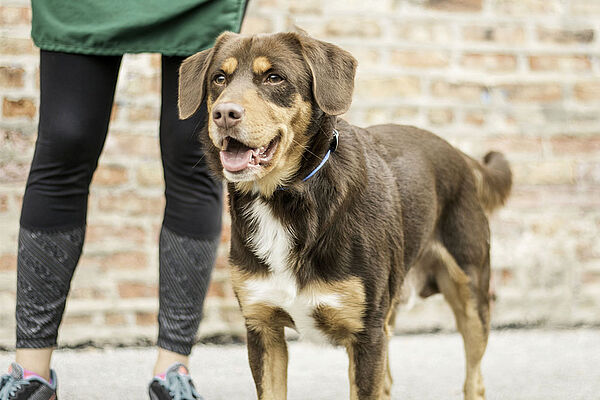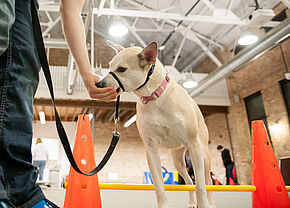This is a great class for dogs who need practice focusing in the presence of outdoor distractions.
Has your dog mastered basic cues but still needs practice focusing in the presence of outdoor distractions? For many pups, squirrels, other dogs and people make it challenging to remain calm and under control. Training in the Wild class focuses on building your problem-solving skills for training your dog in the real-world. The class will help you achieve reliable responses from your dog with increased distractions.
This class is a 4-week course intended to apply training skills to the real-world. The class will have destination training including field trips to stores & parks depending on weather.
Classes are limited to six dogs each. The small class size ensures an environment conducive to learning.
The Basics
- Number of Classes: 4 weekly classes (Class will meet on the same day/time each week)
- Length of Class: 1 hour
- Class Structure: 1-hour training sessions with your dog
- Age: All ages are welcome
- Prerequisites: Completion of a Basic Obedience Class or permission from instructor (trainingcenter@pawschicago.org)
- Price: $125
The following are required for participation
- Vaccination records: Copies of your dog’s age-appropriate distemper/parvo, rabies and Bordetella vaccinations must be brought to the first class.
- Two Different Leashes:
- A five- or six-foot leash (no retractable or chain leashes).
- A 15-foot cotton-web training leash.
- Collar/Harness: Martingale collar, buckle collar or training harness.
- Clicker: This training tool can be purchased online or at any pet supply store.
- Treat carrier: A bag, pouch, fanny pack, apron with pocket or deep pocket that provides easy access to treats.
- Treats: Lots of small, easy-to-chew, high-value treats. Cut up pieces of cheese or hot dogs are good choices, as are soft treats made specifically for training. (Experiment in advance to discover what your puppy really loves.)
- Please be on time.
- Wear comfortable clothing and nonskid shoes. Flip flops, sandals and heels are not recommended.
- Do not feed your puppy before class. A hungry puppy is more motivated to learn.
- Give your puppy time to relieve himself before class.


